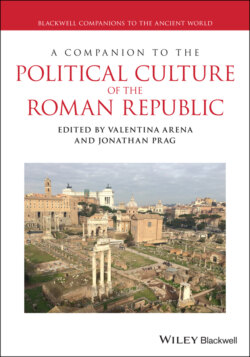Читать книгу A Companion to the Political Culture of the Roman Republic - Группа авторов - Страница 49
4.5 The Republic of Letters
ОглавлениеMany of the purported ‘classical republican’ uses of Roman references are not devised to castigate modern individualism and glorify the necessary submission of individual interests to the unifying general will (see Saige 1775: 1–3, 39–40, 85). But more importantly, some Roman republican themes can be traced in those very philosophes – Diderot and d’Alembert – who most emblematically personify the modern Enlightenment against which Roman republicanism purportedly struggles (for Diderot see e.g. Quintili 2004; Hamel 2009; Goggi 2013). By contrast with the wonted opposition, the same republican ideal of freedom could also be used by some of these propagators of modern Enlightenment both to diagnose and to suggest quite drastic remedies to the fatal disease suffered by the members of the Republic of Letters.
In his Essay on the society of men of letters, and on the great (1980). He excoriates the ways of the Republic of Letters for their being absolutely contrary to republican mores. Indeed, Patrons of the Arts are but ‘despots of literature’ keeping men of letters in their ‘dependence’ (d’Alembert 1753a: 403). Because of men’s fondness for superiority, mécènes (‘patrons’, derived from ‘Maecenas’) tend to assimilate the granting of a benefit with ‘an act of sovereignty which one abuses to put some unfortunate under one’s dependence’ (397). This kind of servitude breeds servile attitudes and fosters hypocrisy and self-censure. But more seriously, its peculiar effect is to make the very blessings given by benefactors ‘dreadful’, ‘sometimes humiliating’, and to ‘communicate to the soul a debasement that imperceptibly degrades ideas’ (398). In a striking move, d’Alembert uses the republican commonplace of the good master to make a frontal attack on them, taking the mécènes’ despotism as just another manifestation of the more general scourge of tyranny:
Much has been written, and rightly so, against the ungrateful, but we have left the benefactors in peace, and this is a missing chapter in the story of Tyrants. (397)
These relationships of dependence, he concludes, could not be more distant from what is expected in a republic: ‘the term Republic of Letters is quite ill devised: nothing is less republican than [the mécènes’] line of conduct and their ways of behaviour towards their fellow creatures’ (402). As d’Alembert makes clear, by turning Juvenal’s cutting remark about the passivity of the Roman people under emperors into a pious republican hope, the most terrible effect of this predicament is the incapacity of men of letters to claim freedom:
The Romans used to say: ‘bread and circuses’ [Juv. 10.80]; how desirable would it be that all men of letters had the courage to say: ‘bread and freedom!’ (399)
Further reinforced by d’Alembert’s immediate specification – that the freedom in question is ‘not only in their persons but also in their writings’ (ibid.) – the political message of the analogy is very clear: such a freedom could not stop at the boundaries of the Republic of Letters. The charges against the despotic society of the men of letters cannot but spread to society at large. True, when he then states his most radical contention – ‘only the democratic form [of government] was appropriate to such a state as the Republic of Letters, which lives only on its liberty’ (403–404) – he carefully specifies that the literary society is not literally, but only metaphorically, a state. Yet the question that inevitably arises, in turn, is whether the democratic (i.e. republican) Republic of Letters could exist under the French monarchy. For the power of the mécènes, direct interlocutors of men of letters, is far from being socially and politically metaphorical: mécènes are masters, nobles attached to the court, and d’Alembert’s wish that the Republic of Letters should unite together, hopefully to gain some degree of safety, is desperate and should not be taken too seriously. That great geniuses have nevertheless contributed to the advancement of learning and sciences, despite the ‘spirit of despotism’ reigning in some ‘famous academies’, is the exception proving the general rule that ‘in a despotic state, the virtues of the citizen are a fool’s virtues’ (403).
Therefore, d’Alembert’s conclusion seems to be that no Republic of Letters – however metaphorical this republic may be – will ever be possible except for free men living in a free republic tout court.
